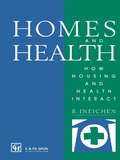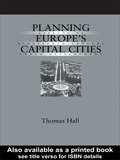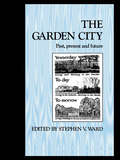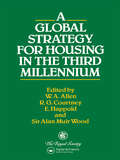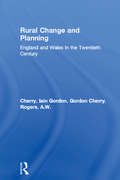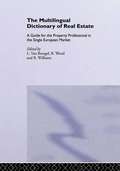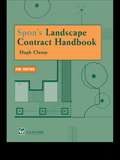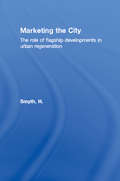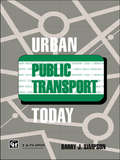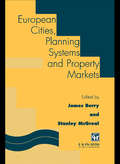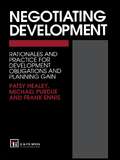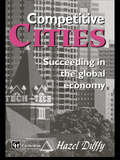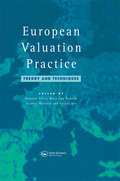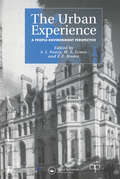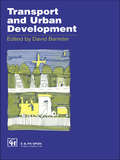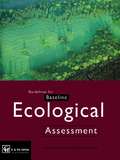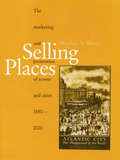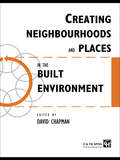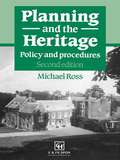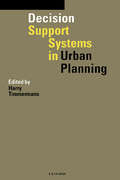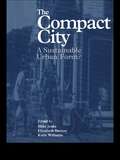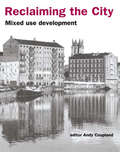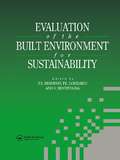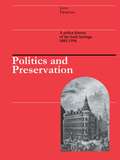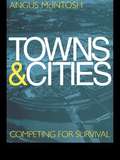- Table View
- List View
Homes and Health: How Housing and Health Interact
by Bernard IneichenThis book links where people live with their health. The author reviews how housing has influenced health throughout the past hundred and fifty years, discusses in detail current issues concerning housing and health and describes attempts at housing particular groups whose health is at risk.
Planning Europe's Capital Cities: Aspects of Nineteenth-Century Urban Development (Planning, History and Environment Series)
by Thomas HallDuring the nineteenth century many of Europe's capital cities were subject to major expansion and improvement schemes. From Vienna's Ringstrasse to the boulevards of Paris, the townscapes which emerged still shape today's cities and are an inalienable part of European cultural heritage.In Planning Europe's Capital Cities, Thomas Hall examines the planning process in fifteen of those cities and addresses the following questions: when and why did planning begin, and what problems was it meant to solve? who developed the projects, and how, and who made the decisions? what urban ideas are expressed in the projects? what were the legal consequences of the plans, and how did they actually affect subsequent urban development in the individual cities? what similarities or differences can be identified between the various schemes? how have such schemes affected the development of urban planning in general?His detailed analysis shows us that the capital city projects of the nineteenth century were central to the evolution of modern planning and of far greater impact and importance than the urban theories and experiments of the Utopians.
The Garden City: Past, present and future (Planning, History and Environment Series)
by Stephen WardThis examination of a phenomenon of 19th century planning traces the origins, implementation, international transference and adoption of the Garden City idea. It also considers its continuing relevance in the late 20th century and into the 21st century.
A Global Strategy for Housing in the Third Millennium (Technology In The Third Millennium Ser.)
by W. A. Allen R. G. Courtney E. Happold Alan Muir WoodThis book outlines the emerging determinants, in a global context, for the provision of housing for the growing, shifting and changing populations. In doing so the reader will be encouraged to forsee the complementary evolution in the planning, design and construction of housing in the developed and developing world.
Rural Change and Planning: England and Wales in the Twentieth Century (Planning, History and Environment Series)
by Gordon Cherry A.W. RogersThis book provides a critical overview of rural change over the eighty years since the outbreak of the Great War, making clear the historical origins of present-day policy. It also provides a structural integration for the many diverse themes which must be interwoven in order to understand current conditions in the countryside.
The Multilingual Dictionary of Real Estate: A guide for the property professional in the Single European Market
by Bernadette C Williams R. Williams B. Wood L. van BreugelThe Multilingual Dictionary of Real Estate" is not simply a word-for-word dictionary of specialist and technical terminology. It offers explanations of terms which cannot be translated exactly or are liable to cause confusion. A supplementary section of the dictionary provides detailed notes as well as translations of particularly tricky terms. There are also invaluable sections outlining the real estate and planning systems in the different European countries, government and planning hierarchies and real estate associations throughout Europe.
Spon's Landscape Contract Handbook: A guide to good practice and procedures in the management of lump sum landscape contracts
by Hugh Clamp H. ClampThis indispensable manual for landscape work covers the documentation and management of landscape contracts. It is written for all those involved in the landscape industry.
Marketing the City: The role of flagship developments in urban regeneration
by H. SmythThis book assesses the value of flagship developments and draws out lessons for best policy and practice. It looks at marketing strategies and the sales process for flagship developments and the areas in which they are located for urban regeneration. It discusses the management of marketing strategies and the development through the policy formulation, project implementation and policy/project evaluation. The author examines the strategies to date of 'marketing the city' and the conceptual scope and limits for developing the concept. He also looks at the extent to which people can be integrated into the urban 'product' and the advantages and disadvantages of this. Finally the impact of all these issues is assessed for the policy makers, planners, developers, architects and city authorities.
Urban Public Transport Today
by Dr Barry Simpson B. SimpsonThis book is about how local public transport can be made a less unacceptable alternative to the private car than it is now. It is intended for officials, politicians and others interested in the land use/local transport conundrum. It is also valuable to town planners, those working for passenger transport authorities and anyone concerned with policy making and project appraisal for local public transport.
European Cities, Planning Systems and Property Markets
by James Berry Stanley McGrealA common theme running through both the market economies of Western Europe and the old command economies of Eastern Europe is the desire to combine local economic development objectives with those of the international investor. It is in this context that the interaction between planning systems and property markets is of paramount importance.
Negotiating Development: Rationales and practice for development obligationsand planning gain
by F. Ennis Frank Ennis P. Healey Prof Patsy Healey M. PurduePlanning gain is the legal process by which property development is linked to social provisions. This book examines the rationale for planning gain and development obligations and reviews the practice of development negotiation through a wide range of case histories.
Competitive Cities: Succeeding in the Global Economy
by Hazel DuffyCompetitive Citites is an assessment of the way in which `partnership', a word much used by politicians, has helped to shape the economic futures of four cities on both sides of the Atlantic - Atlanta, Toronto, Birmingham and Rotterdam.
European Valuation Practice: Theory and Techniques
by A. Adair M.L. Downie S. McGreal G. VosThe variability of valuation practice within Europe is perceived as a problem within the globalization of property. This edited textbook examines the practice of real estate valuation in selected countries in Europe. The focus is on countries with well developed real estate markets in which both international and indigenous investors are active. The book is aimed at real estate professionals, financiers, institutional advisers, property researchers and students who require a greater understanding of comparative property appraisal techniques applied across Europe.
The Urban Experience: A People-Environment Perspective
by S. J. Neary M. S. Symes F. E. BrownThis book provides a representative selection of the highest quality papers submitted to the IAPS 13 conference held in Manchester in 1994. The papers are concerned with current research on the experience of living in cities and are drawn from developed, developing and under-developed countries in all parts of the world.
Transport and Urban Development
by David BanisterThe editor and his contributors take an international perspective on the links between land use, development and transport and present the latest thinking, the theory and practice of these links. Authors from six countries - all experts in this area - have been commissioned to write chapters on the theoretical debates and more practical issues, via the use of detailed case studies.
Guidelines for Baseline Ecological Assessment
by The Institute of Environmental AssessmentThese best practice guidelines present the type and level of detail required for describing and evaluating the ecological baseline of an environmental assessment. These assessments are vital in determining whether or not there are issues of ecological importance for a site or proposed development and are an essential component of the environmental impact assessment process.
Selling Places: The Marketing and Promotion of Towns and Cities 1850-2000 (Planning, History and Environment Series)
by Stephen WardSelling Places explores the fascinating development of the place marketing and promotion over the last 150 years, drawing on examples from Northern America, Britain and continental Europe. The processes involved and the promotional imagery employed are meticulously presented and richly illustrated.
Creating Neighbourhoods and Places in the Built Environment (Built Environment Series Of Textbooks Ser.)
by David ChapmanThis design primer examines the forces at work in the built environment and their impact on the form of buildings and their environments. The actions of a range of individuals and agencies and the interaction between them is examined, exploring the competing interests which exist, their interaction with physical and environmental forces and the uncertain results of both individual and corporate intervention.
Planning and the Heritage: Policy and procedures
by Michael RossThis is a clear guide to heritage legislation in the UK. It is set out in plain, non-legal language and will guide the planner, developer, architect or conservationist through the legislation, explaining the policy and procedures which govern the protection of historic buildings as well as providing clear explanations of the issues involved, including listing, planning appeals and grants.
Decision Support Systems in Urban Planning
by Harry TimmermansThis book presents a set of selected and edited papers presented at the 2nd and 3rd Design and Decision Support Conference. The purpose is to provide examples of innovative research in decision support systems in urban planning from throughout the world.
The Compact City: A Sustainable Urban Form?
by Mike Jenks Elizabeth Burton Katie WilliamsThis book presents the latest thinking on the benefits and dangers of higher density urban living. It offers diverse opinions and research, from a wide range of disciplines, and gives an insight into both the theoretical debate and the practical challenges surrounding the compact city. Essential reading for anyone with an interest in sustainable urban development.
Reclaiming the City: Mixed use development
by Andy CouplandMixed use development is about retaining or creating a mix of different uses in cities or neighbourhoods. The trend in UK development has been towards specialisation and areas with single uses. Increasing the mix of uses is thought to reduce the need to travel, lower the likelihood of crime, improve the ambience and attractiveness of areas and contribute to the sustainability of cities.
Evaluation of the Built Environment for Sustainability
by P. S. Brandon P. L. Lombardi V. BentivegnaSustainability in the built environment is a major issue facing policy-makers, planners, developers and designers in the UK, Europe and worldwide. The measuring of buildings and cities for sustainability becomes increasingly important as pressure for green, sustainable development translates into policy and legislation. The problems of such measurement and evaluation are presented by the authors in contributions which move from the general to the particular, e.g. from a general framework for an environmentally sustainable form of urban development to a specific input-output model application to environmental problems. The book is divided into three parts: the first covers city models and sustainable systems - research programmes, environmental policies, green corporations and collaborative strategies to make urban development more sustainable; part two discusses the problems of evaluating the built environment in planning and construction, covering economic and environmental methods and construction, development and regeneration processes; part three illustrates a number of applications using different approaches and techniques and referring to a range of environmental aspects of the natural and built environment, from maintaining historic buildings to transport management and air pollution monitoring.
Politics and Preservation: A policy history of the built heritage 1882-1996 (Planning, History and Environment Series #Vol. 22)
by John Delafons J. DelafonsThis book traces the policy history of urban conservation and its relationship to the town planning process and both are set in their political context. Part One deals with the origins of conservation and its cultural background. Part Two deals with the post-war legislation and the increasing scope of conservation. Part Three deals with churches and their separate control system, and Part Four brings the story up to the present time. New issues such as sustainable conservation and the latest government policy are addressed in the conclusion. This book will aid current practice and help to inform future directions.
Towns and Cities: Competing for survival
by Angus McIntosh Dr Angus McintoshThe last fifty years have seen dramatic changes in towns and cities. People have moved out of central urban areas, retailing has moved out of towns and jobs have also declined in city centres, particularly with the growth of business and science parks. With the continuing decline of the manufacturing sector and the re-shaping of employment in the service sector, a new force will increasingly dominate urban development, the meritocratic elite. The meritocratic elite are those able to develop and use information technology to generate productivity and wealth. Where they wish to live will increasingly influence future urban development.Towns and Cities - Competing for survival suggests that as public and private corporations continue to downsize, outsource and re-engineer themselves, an increasing amount of expenditure and employment growth will lie with the leisure sector. Herein lies one of the solutions to the decline of towns and cities.Town planners and economists have continually displayed a lack of understanding of these developments and have not anticipated the forces which cause urban change. As the global econonmy, combined with changes in transport and information technology increasingly dominates our lives, local and national governments need a new agenda for the 21st century. If they fail to rise to this challenge many of our town and city centres will continue to decline and may not survive.
